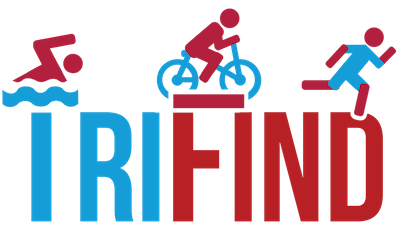The Off-Season Dilemma
The Off-Season Dilemma
During the months of in-season training -- more appropriately called race season -- you're required to maintain intense mental focus, serious time commitment, and strenuous physical activity, which can take a toll on multiple areas in your life. Its only natural to want a break once the race season ends. So, how can you rest and still not lose months of hard work? After all, you dont want to have to start over once the break ends, right?
The Cost of Detraining
Researchers have estimated VO2 max -- a measure of cardiorespiratory capacity -- to decline by about 4 percent after only 3 weeks of detraining. Oxidative enzyme activity -- enzymes related to energy production -- decreased by 13 to 24 percent while overall performance times decreased by 2 to 5 percent. In addition, researchers found no change in muscular strength and power after 4 weeks of detraining and only 45 percent loss after one year.
Added to the cost of detraining, is the price of retraining. How long does it take to get back to the end-of-season (EOS) fitness level? In a study of highly trained athletes, it took only 15 days for their VO2 max to return to EOS levels. Muscular strength, as previously mentioned, remains unchanged for the most part. However, estimates of getting back to full EOS fitness and speed levels are about 40 days.
Benefits of Detraining
While the costs may sound expensive, you must weigh out the benefits of some good R&R. Nagging aches and pains can be treated that may otherwise develop into long-term injury. The mental requirements of focus on training and race deadlines are relieved. You can catch up on needed projects around the house. You can have a social life that isnt managed between exercise induced breaths. And, your significant other will finally stop giving you that look when you go out the door for another training session. Most of all, you wont hit the next race season tired, burnt out and dreading the next 8 to 10 months of intense training.
What Should You Do During the Off-Season
Part of the confusion of the off-season is the name it has been given. For the competitive athlete, there is no true, off-season. There is simply a non-race season. While it should be a time to relax and unwind, it shouldnt be two months of sitting on the couch eating Ben and Jerrys. Keep in mind, the major purposes of the non-race season relate to rest, recovery, mentally unwinding, and getting re-energized for the next race season.
Here are a few ideas for a productive non-race season:
Time off-Immediately after the last race, its not a bad idea to take a week or two of complete off time from training. Most likely, youre burnt out and beat up from training and race deadlines and need a short vacation. So give your body a break, treat those injuries, and get some rest.
Mental Acceptance-Triathletes are a lot like Rambo, you just cant flip that killer/racer switch on and off at will. Use positive self-talk to reaffirm that fitness losses will happen but will not be lost permanently. Reaffirm that you are doing the right thing and race season will be back soon enough in which you will be back to race shape in no time.
Time Management-Triathletes might be the best time managers in the world. They take an already packed day and still squeeze in a ride, run or swim and make it look easy. Once the races are done, you may suddenly find yourself with nothing to squeeze into those time holes. This can augment an already increasing awareness that you are losing fitness and drive you to train even though you really dont want to. Instead, fill these holes with catching up on house projects, treating your spouse to lunch, spending time with your children and deliberately slowing pace. Visit your friends. You may not recognize them when theyre not wearing spandex, goggles or running shoes.
Try Something Different-This is the perfect time to cross-train. Join a local basketball team or indoor soccer team. Take some classes at your local fitness facility. Dust the mountain bike off and then go put some trail-mud on it. The key point is to distance your self from the grind of deadlines, daily runs, rides and/or swims while still maintaining a healthy level of activity.
Weight Train-You can feel very productive by building strength and power. Not only that, its a great way to prepare for next race season.
Explore New Courses-Go try a new trail or ride a new route and enjoy it. This not only serves as getting out of the routine but also may help you when race season rolls around.
Go-Go Gadget...less-During race season, heart rate monitors and power meters enslave you. For non-race season, leave your gadgets at the door and focus on enjoyment, not pace or wattage.
The Itch-This has nothing to do with that stuff your currently treating with anti-fungal cream. Its about that feeling you get when race season does roll around and you have the get-pumped-up music in your head even though your iPod is off. Its about that feeling when you dont have to coach yourself up to get out the door. This feeling is most potent when it comes naturally, so dont force it. Be active at least 3 to 4 days per week during your time off but not so much that it delays that natural itch.
Have a great non-race season!
Written by Scott Flynn, MS, CES
Multi-Sport Coach
Owner of Threshold Multisport Coaching
Find more articles at http://multi.sports.officelive.com/default.aspx


